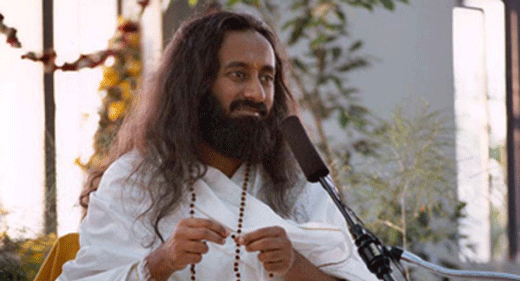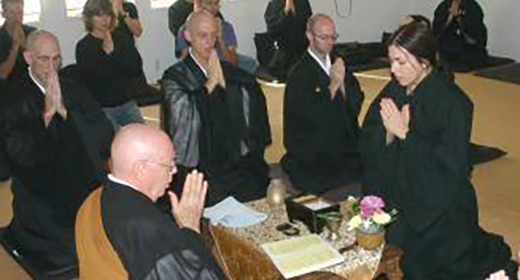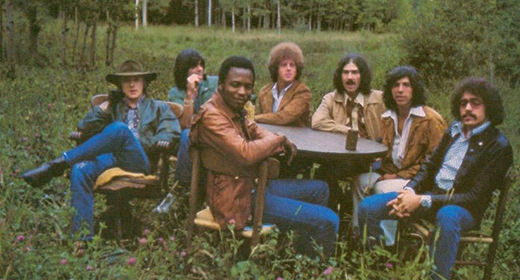by Sri Sri Ravi Shankar: Narada’s entire aphorisms focus on offering all activities, all attitudes, everything to the Divine and feeling free.

If you are miserable, then you have forgotten your true nature. No one else is responsible for your misery because it is just you who has forgotten how vast, how beautiful you are. You know a small speck of dust can obstruct your vision of vastness, can’t it? You are looking at the vast sky, a huge mountain – just a small dust particle in your eyes is enough to blind you. In the same way, completely insignificant things occupy your mind. Really useless things occupy your mind, go round and round, and obstruct your true nature, which is love.
Is love a practice? No. Can you sit and practice being in Love? How many days, how many minutes? How should you sit and what should you do? Raise your arm up and tongue out? There was a gentleman in one of the meditation classes. He was the chief justice in the international court at Hague. After hearing all the talk on how meditation means to be effortless – nothing to do, just to relax, at the end of it, he asked where the tongue should be! “What should be the position of the tongue when we meditate?” I said as long as it is inside the mouth, it is okay! (Laughter) Where do you put the tongue? Keep it out?
Effortlessness. Virtues are there in you, do not try to cultivate virtues – they are in you already. All that you need is to become a little quiet, a little calm. When you become effortless, calm and serene, virtues, talents and skills all manifest in your life, all come to the surface. All our effort is only to get rid of the stress, get rid of all the dust that we have accumulated. And Karma – our action, Gyana – knowledge, and Yoga are all a way, a path to do this, to achieve this purity. Actually, ‘achieve’ is not the correct word. Knowledge is like a detergent – to be put on and then washed off! Same way with action, “I did so much good,” “I did this charity,” “I did that charity.” If you keep thinking this way, taking pride in your charity or the good work you have done, then that becomes a deterrent to your blossoming. There is a proverb in Hindi that says, “Do good and throw all the merit in the well, throw it in the river.”Don’t even remember what good things you have done in life.
Have you heard the story about the emperor in China? Once Bodhisattva was invited to China, so he went from India. The Emperor of China welcomed him at the border. He gave him a big reception. In the reception, the minister of the emperor read out all the good that the king had done, all the charity work, dug many ponds and wells, made so many homes, donated so much money, and this and that, everything. And Bodhisattva, hearing everything, then told the Emperor, “You are going to go to hell.” At his very first step into the land of China, at the very first reception, he says, “You are going to go to hell because you are taking pride in the good works you have done.You are taking pride in charity.” “Oh, I have served so many people.” This is like holding on to the detergent. You know, if you don’t wash away the detergent, the soap that you leave on your clothes, that itself will become dirt, whether it is knowledge or the good work or actions that you do. Nor can you say, “I meditated over 20 years.” For whose sake did you meditate 20 years? You seem to take a sense of pride in having meditated 20 years.
You complain, “20 years I meditated, nothing is happening.” Who is responsible? “I did this, this, this and nothing happened to me.” Your spiritual practices should not make you complain about some result that you may want to achieve. Narada says that Divine Love is a greater high than all. Why? Because it is the fruit. If you are doing some good job, the fruit of it is imminent, it is immediate. It gives you a sense of fulfilment, right then and there.









































